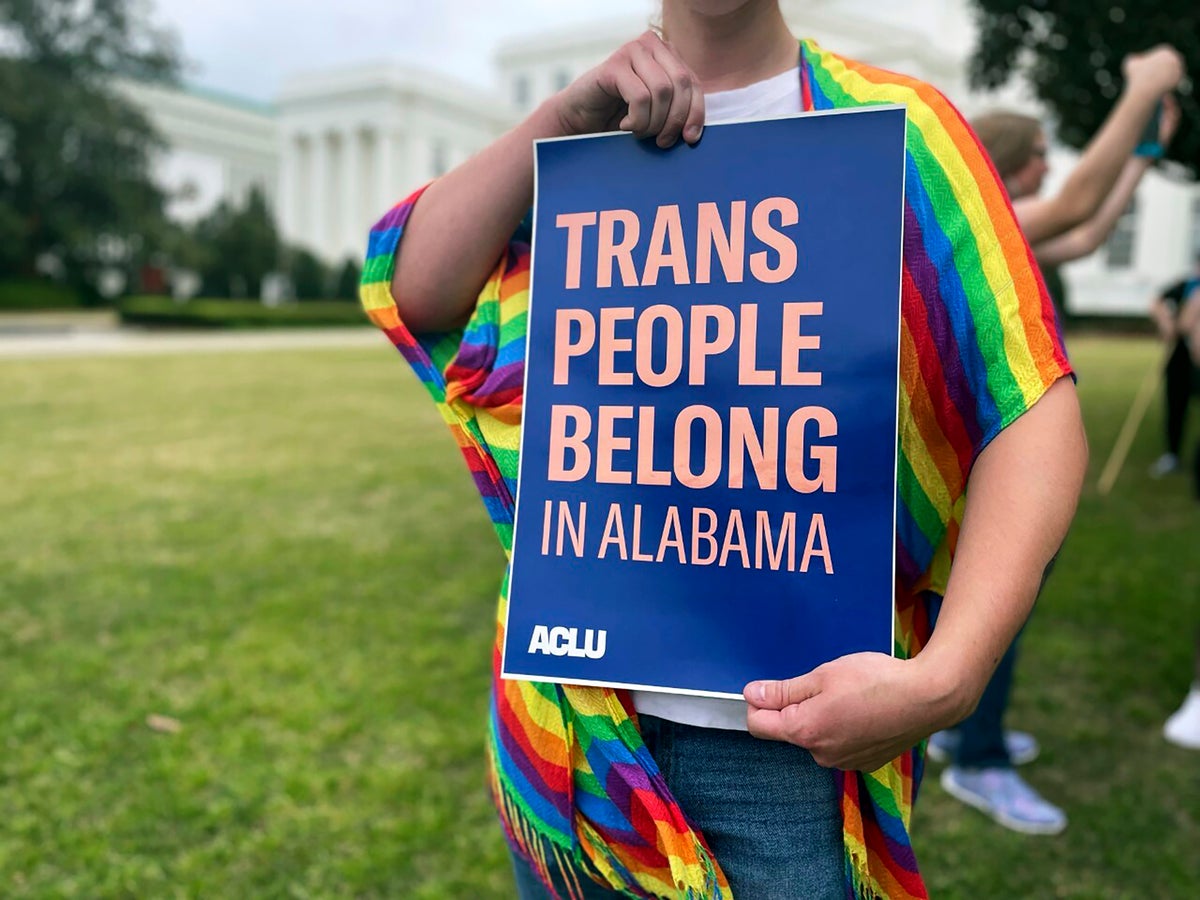
Alabama families with transgender children asked a full appellate court Monday to review a decision that will let the state enforce a ban on treating minors with gender-affirming hormones and puberty blockers.
The families asked all of the judges of the 11th U.S. Circuit Court of Appeals to review a three-judge panel decision issued last month. The panel lifted a judge’s temporary injunction that had blocked Alabama from enforcing the law while a lawsuit over the ban goes forward.
The Alabama ban makes it a felony — punishable by up to 10 years in prison — for doctors to treat people under 19 with puberty blockers or hormones to help affirm a new gender identity. The court filing argues the ban violates parents’ longstanding and accepted right to make medical decisions for their children.
“Parents, not the government, are best situated to make medical decisions for their children. That understanding is deeply rooted in our common understanding and our legal foundations,” Sarah Warbelow, legal director at Human Rights Campaign, said Warbelow said.
While the 11th Circuit decision applied only to Alabama, it was a victory for Republican-led states that are attempting to put restrictions on gender-affirming care for minors. At least 20 states enacted laws restricting or banning gender-affirming care for minors.
The three-judge panel, in lifting the injunction, cited the U.S. Supreme Court ruling that returned the issue of abortion to the states. In weighing whether something is protected as a fundamental right under the due process clause, Judge Barbara Lagoa said “courts must look to whether the right is “deeply rooted in (our) history and tradition.”
“But the use of these medications in general — let alone for children — almost certainly is not ‘deeply rooted’ in our nation’s history and tradition,” Lagoa wrote.
Attorneys representing families who challenged the Alabama ban argued that was the wrong standard and could have sweeping ramifications on parents' right to pursue medical treatments to schooling choices that did not exist when the 14th Amendment was ratified in 1868.
The injunction remains in place until the appellate court transfer the mandate in the case. When that happens, Alabama will be able to enforce the ban. The Alabama attorney general’s office, in a separate court filing in district court, called the hearing request a “delay tactic” to try to keep the injunction in place.







